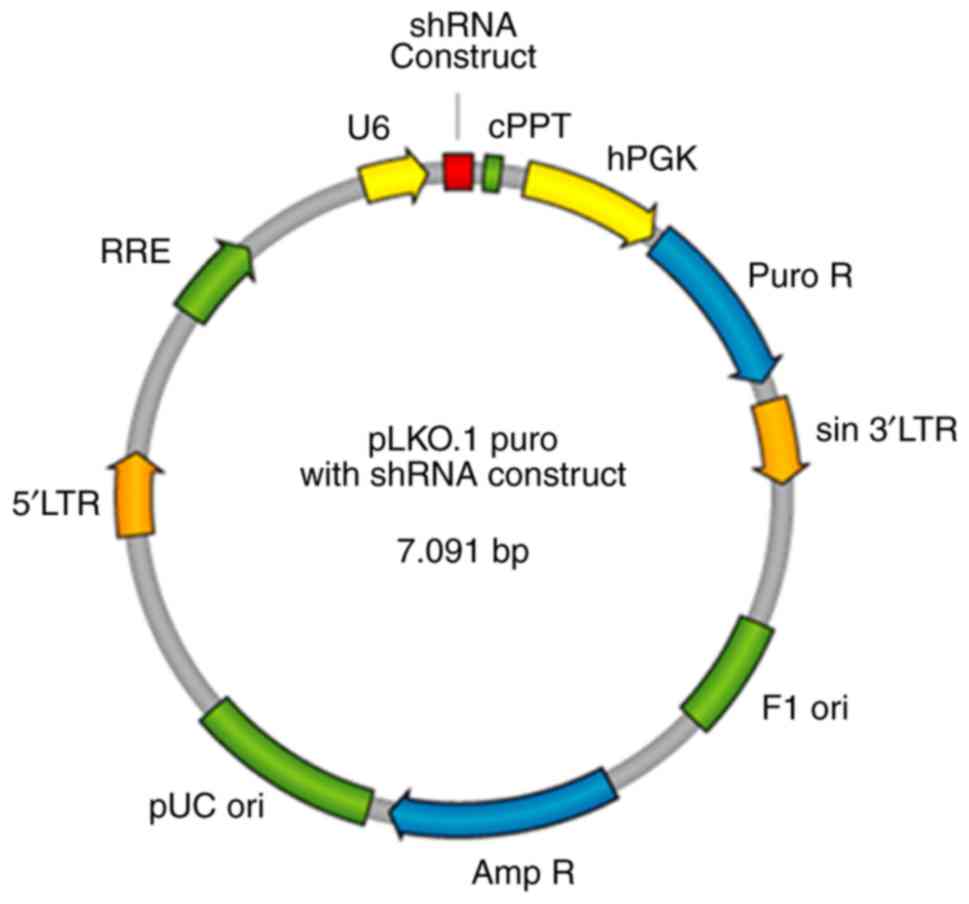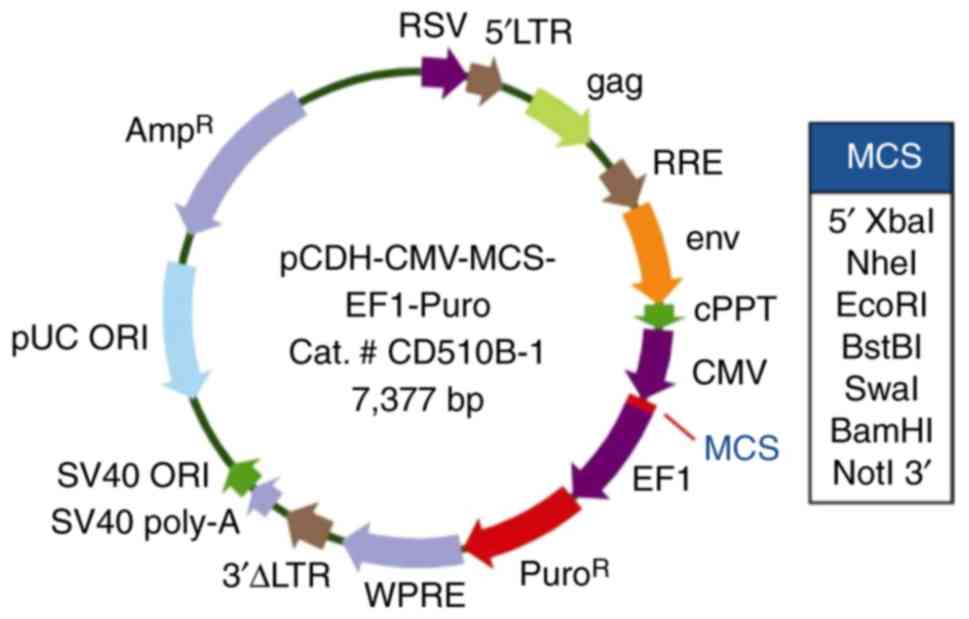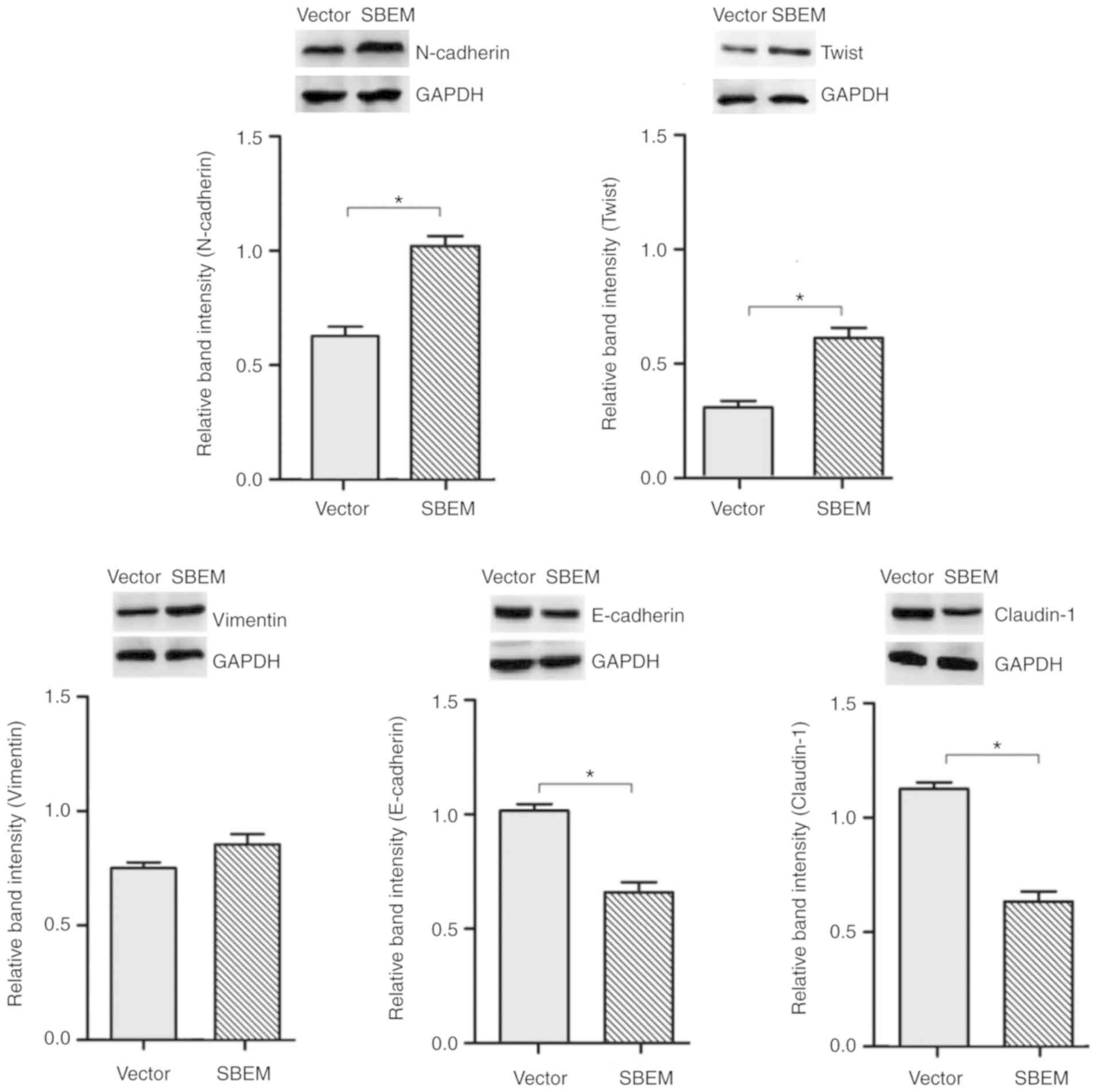|
1
|
Li T, Mello-Thoms C and Brennan PC:
Descriptive epidemiology of breast cancer in China: Incidence,
mortality, survival and prevalence. Breast Cancer Res Treat.
159:395–406. 2016. View Article : Google Scholar : PubMed/NCBI
|
|
2
|
Schindlbeck C, Andergassen U, Jueckstock
J, Rack B, Janni W and Jeschke U: Disseminated and circulating
tumor cells in bone marrow and blood of breast cancer patients:
Properties, enrichment, and potential targets. J Cancer Res Clin.
142:1883–1895. 2016. View Article : Google Scholar
|
|
3
|
Skliris GP, Hubé F, Gheorghiu I, Mutawe
MM, Penner C, Watson PH, Murphy LC, Leygue E and Myal Y: Expression
of small breast epithelial mucin (SBEM) protein in tissue
microarrays (TMAs) of primary invasive breast cancers.
Histopathology. 52:355–369. 2008. View Article : Google Scholar : PubMed/NCBI
|
|
4
|
Liu ZZ, Xie XD, Qu SX, Zheng ZD and Wang
YK: Small breast epithelial mucin (SBEM) has the potential to be a
marker for predicting hematogenous micrometastasis and response to
neoadjuvant chemotherapy in breast cancer. Clin Exp Metastasis.
27:251–259. 2010. View Article : Google Scholar : PubMed/NCBI
|
|
5
|
Ayerbes MV, Diaz-Prado S, Ayude D, Campelo
RG, Iglesias P, Haz M, Medina V, Gallegos I, Quindos M and Aparicio
LA: In silico and in vitro analysis of small breast epithelial
mucin as a marker for bone marrow micrometastasis in breast cancer.
Adv Exp Med Biol. 617:331–339. 2008. View Article : Google Scholar : PubMed/NCBI
|
|
6
|
Voulgari A and Pintzas A:
Epithelial-mesenchymal transition in cancer metastasis: Mechanisms,
markers and strategies to overcome drug resistance in the clinic.
Biochim Biophys Acta. 1796:75–90. 2009.PubMed/NCBI
|
|
7
|
Corso G, Pravettoni G, Galimberti V and
Veronesi P: Clinical implication of E-cadherin deficiency in
lobular breast cancer. Breast Cancer Res Treat. 173:751–752. 2019.
View Article : Google Scholar : PubMed/NCBI
|
|
8
|
Luo CW, Wu CC, Chang SJ, Chang TM, Chen
TY, Chai CY, Chang CL, Hou MF and Pan MR: CHD4-mediated loss of
E-cadherin determines metastatic ability in triple-negative breast
cancer cells. Exp Cell Res. 363:65–72. 2018. View Article : Google Scholar : PubMed/NCBI
|
|
9
|
Zhou B, Blanchard A, Wang N, Ma X, Han J,
Schroedter I, Leygue E and Myal Y: Claudin 1 promotes migration and
increases sensitivity to tamoxifen and anticancer drugs in
luminal-like human breast cancer cells MCF7. Cancer Invest.
33:429–439. 2015. View Article : Google Scholar : PubMed/NCBI
|
|
10
|
Upmanyu N, Bulldan A, Papadopoulos D,
Dietze R, Malviya VN and Scheiner-Bobis G: Impairment of the
Gnα11-controlled expression of claudin-1 and MMP-9 and collective
migration of human breast cancer MCF-7 cells by DHEAS. J Steroid
Biochem Mol Biol. 182:50–61. 2018. View Article : Google Scholar : PubMed/NCBI
|
|
11
|
Sheehan GM, Kallakury BV, Sheehan CE,
Fisher HA, Kaufman RP Jr and Ross JS: Loss of claudins-1 and −7 and
expression of claudins-3 and −4 correlate with prognostic variables
in prostatic adenocarcinomas. Hum Pathol. 38:564–569. 2007.
View Article : Google Scholar : PubMed/NCBI
|
|
12
|
Blanchard AA, Ma X, Dueck KJ, Penner C,
Cooper SC, Mulhall D, Murphy LC, Leygue E and Myal Y: Claudin 1
expression in basal-like breast cancer is related to patient age.
BMC Cancer. 13:2682013. View Article : Google Scholar : PubMed/NCBI
|
|
13
|
Zhu X, Huang S, Zeng L, Ma J, Sun S, Zeng
F, Kong F and Cheng X: HMOX-1 inhibits TGF-β-induced
epithelial-mesenchymal transition in the MCF-7 breast cancer cell
line. Int J Mol Med. 40:411–417. 2017. View Article : Google Scholar : PubMed/NCBI
|
|
14
|
Livak KJ and Schmittgen TD: Analysis of
relative gene expression data using real-time quantitative PCR and
the 2(-Delta DeltaC(T)) method. Methods. 25:402–408. 2001.
View Article : Google Scholar : PubMed/NCBI
|
|
15
|
Torre LA, Islami F, Siegel RL, Ward EM and
Jemal A: Global cancer in women: Burden and trends. Cancer
Epidemiol Biomarkers Prev. 26:444–457. 2017. View Article : Google Scholar : PubMed/NCBI
|
|
16
|
de Boer M, van Deurzen CH, van Dijck JA,
Borm GF, van Diest PJ, Adang EM, Nortier JW, Rutgers EJ, Seynaeve
C, Menke-Pluymers MB, et al: Micrometastases or isolated tumor
cells and the outcome of breast cancer. N Engl J Med. 361:653–663.
2009. View Article : Google Scholar : PubMed/NCBI
|
|
17
|
Hubé F, Mutawe M, Leygue E and Myal Y:
Human small breast epithelial mucin: The promise of a new breast
tumor biomarker. DNA Cell Biol. 23:842–849. 2004. View Article : Google Scholar : PubMed/NCBI
|
|
18
|
Park HK and Seov UH: MUC1 from the mucin
family as potential tools in breast cancer immunotherapy. J Breast
Cancer. 12:1252009. View Article : Google Scholar
|
|
19
|
Kontani K, Taguchi O, Narita T, Izawa M,
Hiraiwa N, Zenita K, Takeuchi T, Murai H, Miura S and Kannagi R:
Modulation of MUC1 mucin as an escape mechanism of breast cancer
cells from autologous cytotoxic T-lymphocytes. Br J Cancer.
84:1258–1264. 2001. View Article : Google Scholar : PubMed/NCBI
|
|
20
|
Heublein S, Mayr D, Egger M, Karsten U,
Goletz S, Angele M, Gallwas J, Jeschke U and Ditsch N:
Immunoreactivity of the fully humanized therapeutic antibody
PankoMab-GEX™ is an independent prognostic marker for breast cancer
patients. J Exp Clin Cancer Res. 34:502015. View Article : Google Scholar : PubMed/NCBI
|
|
21
|
Gerber PA, Hevezi P, Buhren BA, Martinez
C, Schrumpf H, Gasis M, Grether-Beck S, Krutmann J, Homey B and
Zlotnik A: Systematic identification and characterization of novel
human skin-associated genes encoding membrane and secreted
proteins. PLoS One. 8:e639492013. View Article : Google Scholar : PubMed/NCBI
|
|
22
|
Liu L, Liu Z, Qu S, Zheng Z, Liu Y, Xie X
and Song F: Small breast epithelial mucin tumor tissue expression
is associated with increased risk of recurrence and death in
triple-negative breast cancer patients. Diagn Pathol. 8:712013.
View Article : Google Scholar : PubMed/NCBI
|
|
23
|
Miksicek RJ, Myal Y, Watson PH, Walker C,
Murphy LC and Leygue E: Identification of a novel breast- and
salivary gland-specific, mucin-like gene strongly expressed in
normal and tumor human mammary epithelium. Cancer Res.
62:2736–2740. 2002.PubMed/NCBI
|
|
24
|
Liu Z, Guo F and Xie X: Individual
detection significances of small breast epithelial mucin (SBEM) and
human mammaglobin (hMAM) expressions in peripheral blood of breast
cancer patients. Chin-Ger J Clin Oncol. 11:716–720. 2012.
View Article : Google Scholar
|
|
25
|
Yang J, Antin P, Berx G, Blanpain C,
Brabletz T, Bronner M, Campbell K, Cano A, Casanova J, Christofori
G, et al: Guidelines and definitions for research on
epithelial-mesenchymal transition. Nat Rev Mol Cell Bio. Apr
16–2020.(Epub ahead of print). View Article : Google Scholar
|
|
26
|
Creighton CJ, Gibbons DL and Kurie JM: The
role of epithelial-mesenchymal transition programming in invasion
and metastasis: A clinical perspective. Cancer Mang Res. 5:187–195.
2013.
|
|
27
|
Vergara D, Simeone P, Latorre D, Cascione
F, Leporatti S, Trerotola M, Giudetti AM, Capobianco L, Lunetti P,
Rizzello A, et al: Proteomics analysis of E-cadherin knockdown in
epithelial breast cancer cells. J Biotechnol. 202:3–11. 2015.
View Article : Google Scholar : PubMed/NCBI
|
|
28
|
Carrizo MN: Loss of E-cadherin expression
and epithelial mesenchymal transition (EMT) as key steps in tumor
progression. J Cancer Prev Curr Res. 7:002352017. View Article : Google Scholar
|
|
29
|
Bar I, Merhi A, Larbanoix L, Constant M,
Haussy S, Laurent S, Canon JL and Delrée P: Silencing of casein
kinase 1 delta reduces migration and metastasis of triple negative
breast cancer cells. Oncotarget. 9:30821–30836. 2018. View Article : Google Scholar : PubMed/NCBI
|
|
30
|
Liu F, Gu LN, Shan BE, Geng CZ and Sang
MX: Biomarkers for EMT and MET in breast cancer: An update. Oncol
Lett. 12:4869–4876. 2016. View Article : Google Scholar : PubMed/NCBI
|
|
31
|
Libring S and Solorio L: Cancer
mechanobiology: Interaction of biomaterials with cancer cells.
Biomaterials for Cancer Therapeutics. 445–470. 2020. View Article : Google Scholar
|
|
32
|
Trogden KP, Battaglia RA, Kabiraj P,
Madden VJ, Herrmann H and Snider NT: An image-based small-molecule
screen identifies vimentin as a pharmacologically relevant target
of simvastatin in cancer cells. FASEB J. 32:2841–2854. 2018.
View Article : Google Scholar : PubMed/NCBI
|
|
33
|
Xu Y, Qin L, Sun T, Wu H, He T, Yang Z, Mo
Q, Liao L and Xu J: Twist1 promotes breast cancer invasion and
metastasis by silencing Foxa1 expression. Oncogene. 36:1157–1166.
2017. View Article : Google Scholar : PubMed/NCBI
|
|
34
|
Mironchik Y, Winnard PT Jr, Vesuna F, Kato
Y, Wildes F, Pathak AP, Kominsky S, Artemov D, Bhujwalla Z, Van
Diest P, et al: Twist overexpression induces in vivo angiogenesis
and correlates with chromosomal instability in breast cancer.
Cancer Res. 65:10801–10809. 2005. View Article : Google Scholar : PubMed/NCBI
|
|
35
|
Lamouille S, Xu J and Derynck R: Molecular
mechanisms of epithelial-mesenchymal transition. Nat Rev Mol Cell
Biol. 15:178–196. 2014. View Article : Google Scholar : PubMed/NCBI
|
|
36
|
Mali AV, Joshi AA, Hegde MV and Kadam SS:
Enterolactone modulates the ERK/NF-κB/Snail signaling pathway in
triple-negative breast cancer cell line MDA-MB-231 to revert the
TGF-β-induced epithelial-mesenchymal transition. Cancer Biol Med.
15:137–156. 2018. View Article : Google Scholar : PubMed/NCBI
|
|
37
|
Pires BR, Mencalha AL, Ferreira GM, de
Souza WF, Morgado-Díaz JA, Maia AM, Corrêa S and Abdelhay ES:
NF-kappaB is involved in the regulation of EMT genes in breast
cancer cells. PLoS One. 12:e01696222017. View Article : Google Scholar : PubMed/NCBI
|
|
38
|
Li L, Tang P, Li S, Qin X, Yang H, Wu C
and Liu Y: Notch signaling pathway networks in cancer metastasis: A
new target for cancer therapy. Med Oncol. 34:1802017. View Article : Google Scholar : PubMed/NCBI
|
|
39
|
Yang Z, Ji L, Jiang G, Liu R, Liu Z, Yang
Y, Ma Q and Zhao H: FL118, a novel camptothecin analogue,
suppressed migration and invasion of human breast cancer cells by
inhibiting epithelial-mesenchymal transition via the Wnt/β-catenin
signaling pathway. Biosci Trends. 12:40–46. 2018. View Article : Google Scholar : PubMed/NCBI
|
|
40
|
Chen L, Fu H, Luo Y, Chen L, Cheng R,
Zhang N and Guo H: cPLA2α mediates TGF-β-induced
epithelial-mesenchymal transition in breast cancer through PI3k/Akt
signaling. Cell Death Dis. 8:e27282017. View Article : Google Scholar : PubMed/NCBI
|

























